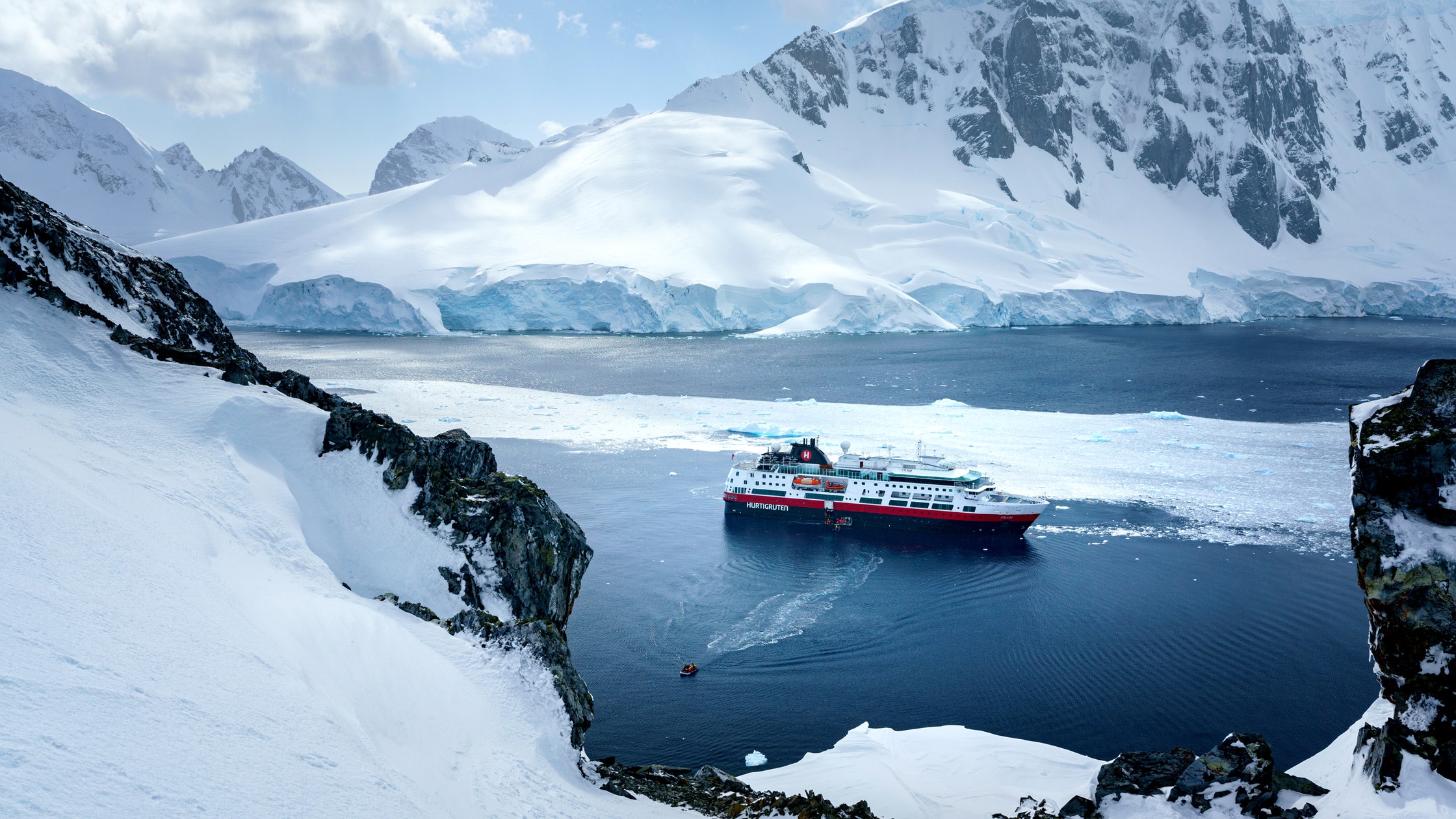“I love telling people that Antarctica will be the trip of their lifetime, and they kind of roll their eyes. And then they come back, and they say, ‘You were absolutely right. Antarctica wasn’t just the seventh continent – it was the most amazing experience of my life.’”
James B. McClintock, professor of polar and marine biology at the University of Alabama at Birmingham, has experienced the wonder of the White Continent repeatedly over the past 30 years, on more than 15 research expeditions. However, even after three-month stints on the dramatic tundra, McClintock struggles to put the magic of Antarctica into words. It’s the unimaginable scale of the landscape, the huddles of penguins with no innate fear of humans – it’s ethereal, otherworldly, and yet none of that is enough to describe just how special Antarctica is.
McClintock is far from the only one who feels its pull. Despite the unattainable allure the destination has held for much of the world, Antarctica has, in recent years, hit the mainstream. Travel magazines showcase the imposing blue-and-white landscape, while social media platforms are flooded with videos and photographs of wide-eyed individuals experiencing ‘The Ice’ for the first time. It appears that everyone is going to Antarctica.
Similar to other travelers, many individuals find themselves eager to explore this pristine wilderness. The final count of visitors to Antarctica during the 2021-2022 tourism season – Antarctica’s austral summer, from October to March – was 23,527 according to the International Association of Antarctica Tour Operators (IAATO). That number represents a minute fraction of the world’s population. Moreover, it’s considerably less than pre-pandemic figures, with nearly 75,000 travelers recorded in the 2019-2020 season. The vast majority of this travel is done by cruise ships.
Travel specialists indicate that even as tourism rebounds post-pandemic, interest in Antarctic cruises is at an all-time high. “Interest in Antarctic cruising has been increasing year over year for the past decade,” says Ashton Palmer, president of Expedition Trips. “We have seen a steady increase as more companies operate trips to Antarctica, thus becoming more prominent in the marketing space. Furthermore, the desire to travel farther and to more remote locations has grown increasingly popular.”
New Ships & Itineraries for Antarctic Exploration
There has been a wave of new Antarctica cruise offerings. Some anticipate a little oversupply in the next two years as companies compete for customers. This could be advantageous for travelers, who will likely benefit from competitive pricing and attractive offers.
Ships like Seabourn Venture, launched in 2022, will be joined by its sister ship Seabourn Pursuit in 2023. Both vessels are equipped with two submarines and offer spacious all-veranda oceanfront suites. Other notable entries include the Silver Endeavor from Silversea, launching its inaugural Antarctica journey in the 2023-2024 season.
Travelers should remain informed and choose operators committed to sustainability. “Many companies are leading the way on innovative, eco-friendly practices,” says Palmer, highlighting changes seen in state-of-the-art expedition vessels aimed at minimizing environmental impacts.
The Impact of Climate Change
This reality is undeniable: Antarctica, a place so many travelers dream of visiting, is changing rapidly. Various studies have noted significant ice loss from the continent’s floating ice shelves. The mean annual temperature of the Antarctic Peninsula has risen notably in recent decades, showcasing the effects of climate change and highlighting the importance of prioritizing sustainable travel.
Some scientists argue that responsible tourism can provide opportunities for research and conservation awareness. As McClintock expresses, “Many travelers who visit will become ambassadors for Antarctic conservation upon their return. It’s an opportunity to engage with the world about climate change issues.”
Conservation Efforts and Responsible Travel
While tourism reflects a growing curiosity about the continent, it is crucial that travelers and operators adhere to strict environmental protocols outlined by organizations like the Antarctic Treaty and IAATO. These measures are designed to protect the fragile ecosystem. Traveler inquiry and scrutiny are imperative to ensure compliance with sustainability practices during voyages.
Conclusion
With the increasing interest in expeditions to Antarctica, it becomes essential for travelers to make informed choices. Emphasizing eco-conscious practices not only enhances individual experiences but also fosters a broader commitment to protecting this incredible environment. As explorers continue to seek the wonders of Antarctica, they have a unique opportunity: to advocate for and contribute to the preservation of the world’s final frontiers.




